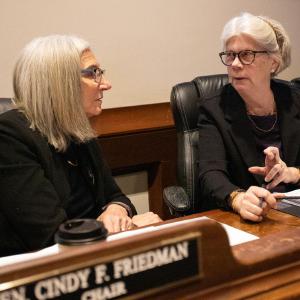My Turn: April is second chance month

EVG Photos/StockSnap EVG Photos/StockSnap
| Published: 04-24-2024 4:41 PM |
April is Second Chance Month, a time to focus on how our community can support our neighbors in central and western Massachusetts returning from incarceration.
As attorneys with Community Legal Aid’s CORI/Re-Entry Unit, we see the life-changing power that sealing a criminal record has every day. Sealing is the process by which a criminal record (“CORI,” or Criminal Offender Record Information) is removed from public access, including access by most employers and all housing providers. These records remain available to law enforcement, the courts, and a few select agencies.
We routinely assist people who are denied employment due to a criminal record that could have already been sealed. These are individuals with reliance, grit, and valuable life experience who seek legal assistance from us because, despite the hard work they’ve put into bettering their lives and those of their families, potential employers cannot see past the record.
There are many reasons why people do not choose to seal their criminal records. For instance, there is a common misconception that while employers who run CORI checks will not be able to see the names of the offenses, they will see an indicator that there are sealed cases. This misconception leads to fear that employers will make assumptions about the nature of sealed records. However, the reality is that if a record is sealed, employers receive CORI results showing no record.
People also believe that sealing a record always involves the court, that the district attorney’s office will inevitably object, and old wounds will be reopened. For most sealing petitions, this is not the case. If all your convictions are old enough (seven years for a felony and three years for a misdemeanor), you can likely seal your CORI administratively (by mail) without filing anything in court.
For a process that was designed to be handled by non-lawyers, the process of sealing a record is unnecessarily confusing. Community Legal Aid’s CORI/Re-entry Unit assists low-income and older adults seal their records and navigate the process of appealing housing and employment denials due to criminal record issues. Individuals can apply for legal assistance from our office at www.communitylegal.org, and by calling our intake line: 1-855-252-5346.
Annie Maurer is a staff attorney and Alyssa Golden, senior supervising attorney in Community Legal Aid’s CORI/Re-entry Project.
Article continues after...
Yesterday's Most Read Articles
 1989 homicide victim found in Warwick ID’d through genetic testing, but some mysteries remain
1989 homicide victim found in Warwick ID’d through genetic testing, but some mysteries remain
 Sportsman’s Corner: Orange Gun Club’s Kids Derby
Sportsman’s Corner: Orange Gun Club’s Kids Derby
 Orange Selectboard declares armory as surplus property
Orange Selectboard declares armory as surplus property
 Providers, families seek legislative urgency to support ALS treatment
Providers, families seek legislative urgency to support ALS treatment
 Battery storage bylaw passes in Wendell
Battery storage bylaw passes in Wendell
 Upon review, panel not behind any ballot questions
Upon review, panel not behind any ballot questions

